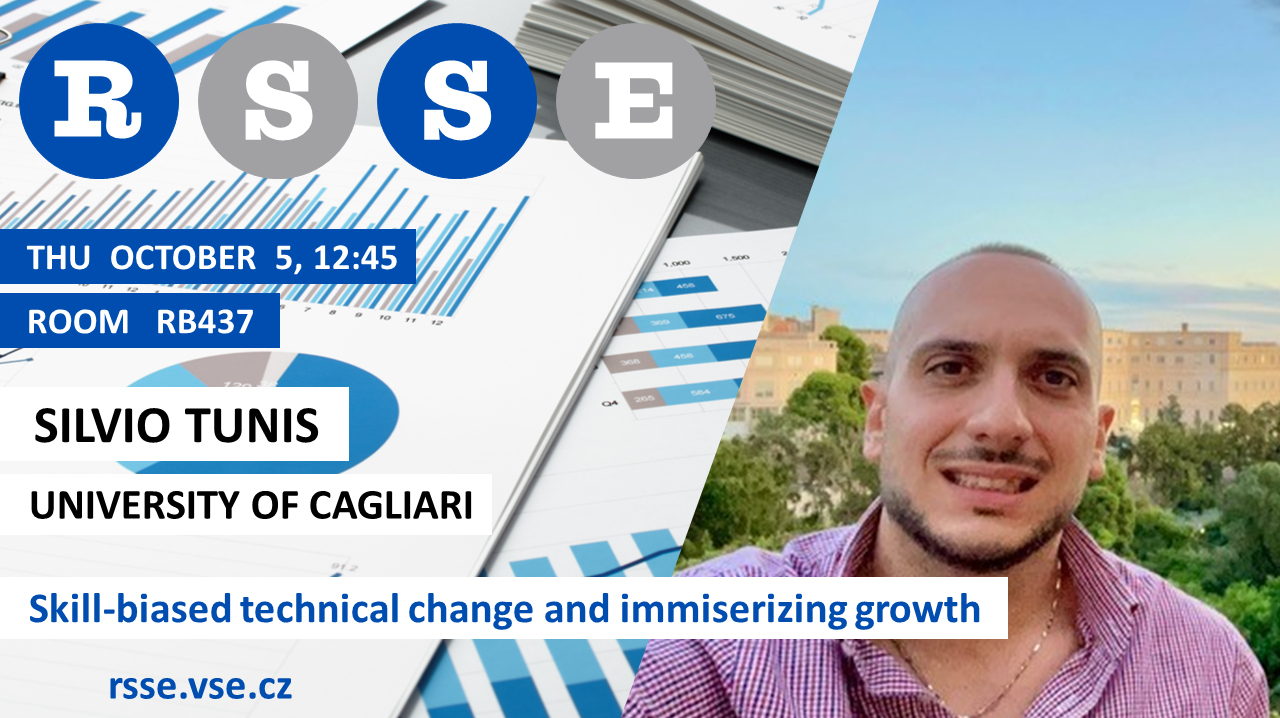Silvio Tunis (University of Cagliari) 5.10.2023
It is our pleasure that dr. Silvio Tunis (University of Cagliari)will present on Thursday, October 5, 2023, at 12:45 in room RB437 about his research on the topic “Skill-biased technical change and immiserizing growth”.
Registration is not required and anyone who would like to attend is warmly invited.
BIO: Silvio Tunis is a post-doctoral researcher at the Department of Economics and Business at the University of Cagliari, Italy, where he also earned his Ph.D. in Economics. Since 2018, he has been a teaching assistant for Macroeconomics in undergraduate courses at the University of Cagliari. During the winter of 2022, he completed a visiting period at The Macroeconomics, Growth, and History Centre (MaGHiC) at the University of Kent, Canterbury. His primary research interests encompass Macroeconomics, Economic Growth, and Demographics. More recently, he has embarked on studying topics related to migration and integration. For further details about his research, please visit www.silviotunis.it
ABSTRACT: We study the phenomenon of immiserizing growth (IG) by constructing a general equilibrium model in a framework with skill-biased technical change (SBTC) and heterogeneous agents in skills characterized by identical Stone-Geary preferences. The non-homothetic feature of these preferences enables agents to consume the same bundles in different proportions as income increases. We identify which drivers in the model can trigger IG situations: the non-homotheticity in preferences, the elasticity of substitution between labour inputs (skilled and unskilled), and differential SBTC across sectors. No IG arises when we calibrate the model to the U.S. industries and labour data from the EU KLEMS dataset. However, our counterfactual experiments reveal that a decrease (increase) in the annual growth factor for the high-skilled (low-skilled) population leads to IG situations. We then identify the population composition and growth rates for skilled and unskilled agents as other significant elements for the phenomenon.
